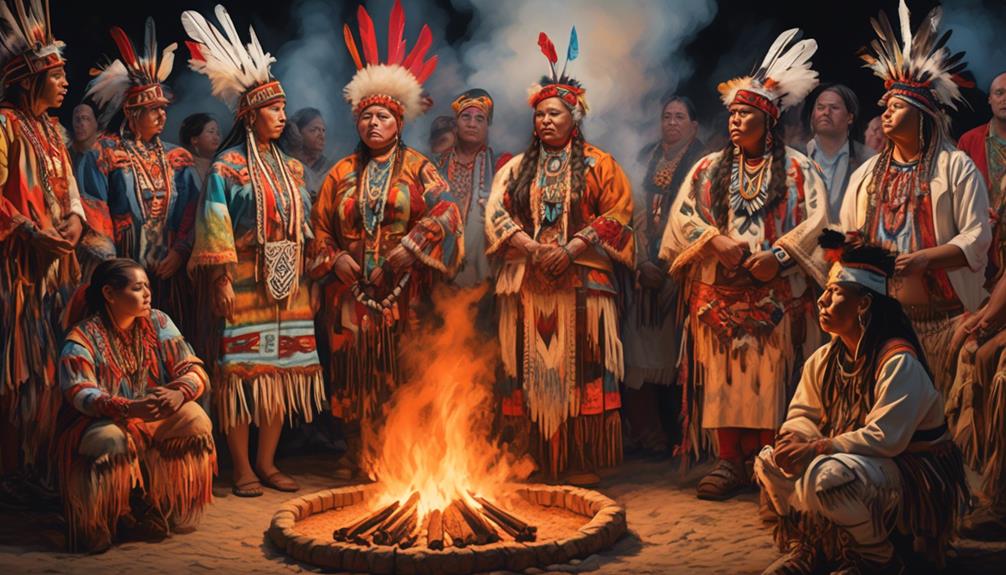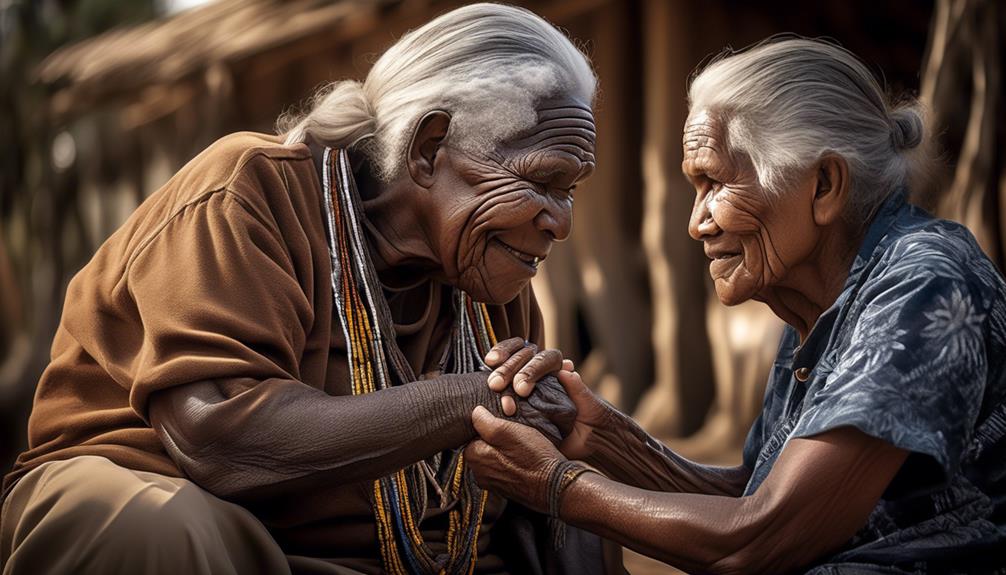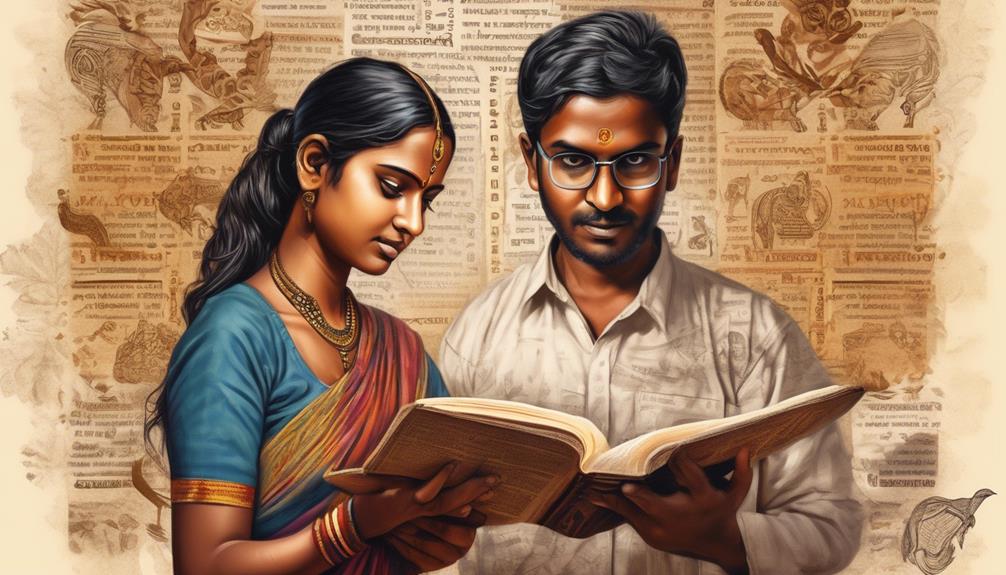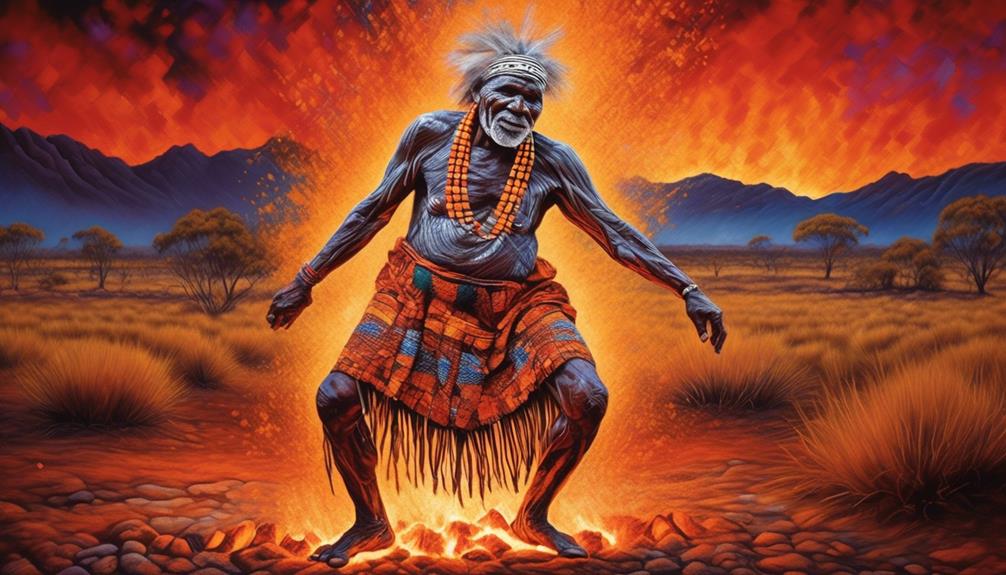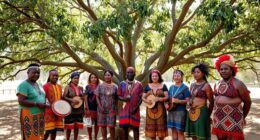Have you ever considered attending a powwow and wondered whether it’s acceptable for non-indigenous individuals to join?
The question of whether non-natives can go to powwows is a complex one, rooted in the traditions and protocols of Indigenous cultures. It involves understanding the significance of powwows and navigating the etiquette and cultural sensitivity required when participating in these events.
There is much to consider, but rest assured, there are ways for non-natives to respectfully engage and learn from the rich traditions showcased at powwows.
Key Takeaways
- Non-natives can attend powwows, but it is important to educate oneself about their significance.
- Show respect by observing quietly and following the guidance of powwow organizers and elders.
- Seek permission before taking photos or recording and respect the privacy and sacredness of the ceremonial activities.
- Non-natives should prioritize inclusive participation, foster cross-cultural exchange, and support indigenous artisans, musicians, and dancers.
Understanding Powwows and Their Significance
If you've ever attended a powwow, you'll immediately sense the vibrant energy and cultural significance that permeates the event. The rhythmic beat of the drum, the colorful regalia, and the spirited dances all reflect the rich traditions and deep-rooted cultural significance of the powwow.
Understanding the traditions and cultural significance of a powwow is crucial for anyone, especially non-natives, who wish to attend such an event. The powwow isn't just a social gathering; it's a sacred ceremony that holds immense spiritual and cultural importance for indigenous communities. Respecting indigenous customs and protocols is essential when participating in or attending a powwow.
Each aspect of the powwow, from the grand entry to the honoring of veterans, has deep cultural and historical meaning. It's important to approach the powwow with reverence and an open mind, ready to learn and appreciate the traditions and customs of the indigenous peoples.
Etiquette and Cultural Sensitivity for Non-Native Attendees
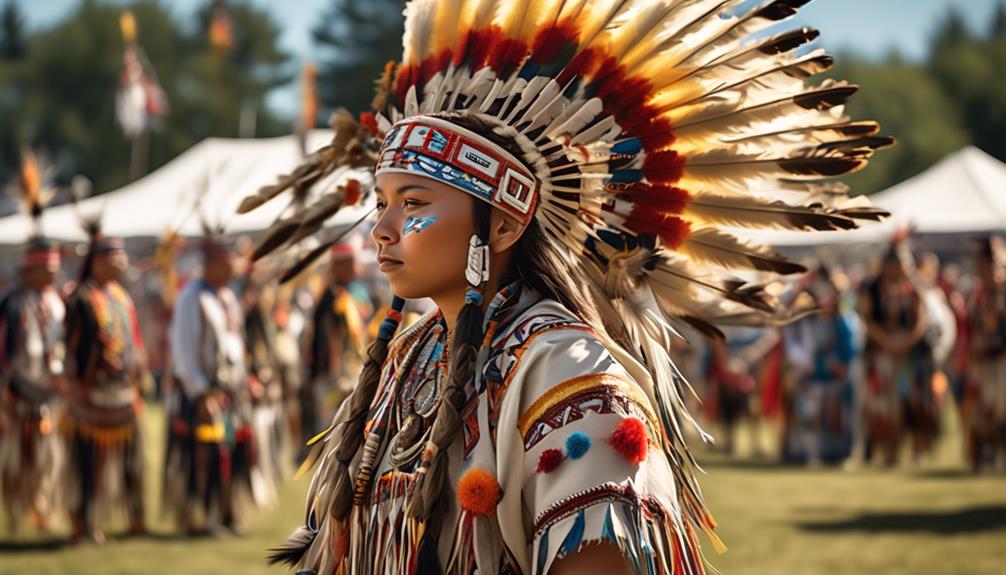
Non-natives attending a powwow should approach the event with cultural sensitivity and a mindset of respectful observance. It's essential to be aware of the cultural significance of the powwow and to behave in a manner that shows respect for the traditions and customs being honored. Here are some key points to consider:
- Cultural Awareness
- Educate yourself about the significance of the powwow in Native American culture. Understanding the history and purpose of the event will help you appreciate its importance and participate with reverence.
- Be mindful of the sacred elements of the powwow, such as the Grand Entry, honoring songs, and dances. Show respect by observing quietly and refraining from any disruptive behavior.
- Proper Behavior
- Follow the guidance of powwow organizers and elders. If there are specific protocols or rules to follow, adhere to them with humility and understanding.
- Seek permission before taking photos or recording any part of the powwow. Respect the privacy and sacredness of the ceremonial activities.
The Role of Non-Natives in Powwow Participation
As you immerse yourself in the powwow, it becomes imperative to consider the potential impact and appropriate role of non-natives in the vibrant tapestry of this cultural celebration. The role of non-natives in powwow participation should prioritize inclusive participation and foster a genuine cross-cultural exchange.
Non-natives can contribute to the powwow community by actively seeking to understand the traditions and customs, showing respect, and participating in a supportive and non-intrusive manner.
Inclusive participation involves embracing the values of diversity and creating an environment where everyone feels welcome to engage in the powwow experience. As a non-native participant, it's essential to approach the powwow with an open mind and a willingness to learn from the indigenous community.
Engaging in cross-cultural exchange entails sharing your own cultural traditions respectfully while also being receptive to learning about the customs and heritage of the Native American communities hosting the powwow.
Non-natives can play a positive role by supporting indigenous artisans, musicians, and dancers, and by demonstrating genuine respect for the sacred elements of the powwow.
Tips for Respectful Engagement at Powwows

When attending powwows, it's important to approach the experience with a deep sense of respect and cultural sensitivity. Engaging respectfully and being mindful of cultural awareness are essential for non-native participation.
Here are some tips for respectful engagement at powwows:
- Observe and Learn: Take time to observe and learn about the customs, traditions, and protocols of the powwow. Pay attention to the etiquette and behavior of those around you to understand the appropriate way to engage.
- *Learning Opportunities*: Utilize the powwow as a learning opportunity to gain insight into Native American cultures. Respectfully ask questions to expand your understanding, but always be receptive to the responses and perspectives shared.
- Honor Sacred Spaces: Be mindful of sacred areas and ceremonies during the powwow. Respect the designated spaces and activities, and seek guidance from the event organizers or cultural leaders if you're unsure about appropriate conduct.
Embracing Learning Opportunities at Powwows
Embracing the learning opportunities at powwows allows participants to gain valuable insights into Native American cultures and traditions, fostering a deeper understanding and appreciation for the significance of these events.
Cultural immersion at powwows offers an unparalleled chance to witness traditional dances, music, and attire, providing a window into the rich heritage and customs of Native American communities.
By actively engaging with the various activities and displays, you can deepen your appreciation for the cultural significance of powwows, recognizing them as more than mere performances but as integral parts of indigenous identity and history.
Intercultural communication at powwows provides a unique platform for respectful interaction and exchange of ideas. Engaging with Native American hosts and participants can offer valuable opportunities to learn about their perspectives, values, and contemporary issues.
This can foster a sense of empathy, understanding, and connection, promoting meaningful dialogue and relationship-building. By actively seeking to understand and respect the cultural significance of powwows, you can contribute to a more inclusive and harmonious community, embracing the educational potential of these gatherings.
Frequently Asked Questions
Are Non-Natives Allowed to Participate in Traditional Dances at Powwows?
At powwows, non-natives are encouraged to participate in traditional dances as a way to promote cultural exchange and inclusivity. It's important to approach this with cultural sensitivity and respect for the traditions of the Indigenous community.
Can Non-Natives Wear Traditional Regalia or Attire at Powwows?
When attending a powwow, it's important to show respectful participation and cultural appreciation.
Non-natives can wear traditional regalia or attire, but it's crucial to do so with utmost respect for the significance and history behind each piece.
Understanding the cultural context and symbolism of the attire is essential.
Are Non-Natives Allowed to Bring Their Own Drums or Musical Instruments to Powwows?
Bringing your own drums or musical instruments to powwows can be a meaningful way to engage in cultural exchange. Non-natives are typically welcome to participate in this way, as long as they do so respectfully and in accordance with the traditions of the event.
It's important to approach this opportunity with a genuine desire to learn and connect, and to understand and honor the significance of the music within the context of the powwow.
How Can Non-Natives Respectfully Ask Questions About the Significance of Certain Rituals or Traditions at Powwows?
Respectful engagement at powwows involves approaching with cultural understanding. When inquiring about the significance of rituals or traditions, it's important to show genuine curiosity and respect.
Non-natives can respectfully ask questions by seeking out knowledgeable individuals, such as elders or cultural leaders, and expressing a desire to learn.
Demonstrating humility and a willingness to listen and understand the answers given is key to fostering meaningful and respectful interactions at powwows.
Are There Specific Ways for Non-Natives to Show Support for Indigenous Communities at Powwows Without Appropriating Their Culture?
To show cultural appreciation, not appropriation, at powwows, non-natives can support indigenous communities by:
- Respecting traditions
- Understanding the significance of the event
- Actively participating in a supportive manner
This can be done through:
- Learning about the history and customs
- Respecting sacred items and spaces
- Supporting indigenous vendors and artists
Conclusion
As a non-native attendee, it's important to approach powwows with respect and cultural sensitivity. Remember the adage, 'When in Rome, do as the Romans do.'
Embrace the learning opportunities and engage respectfully with the traditions and customs of the event. By understanding the significance of powwows and following proper etiquette, you can contribute to the celebration in a meaningful and respectful way.
Take the time to listen, observe, and participate in a way that honors the traditions of the powwow.
